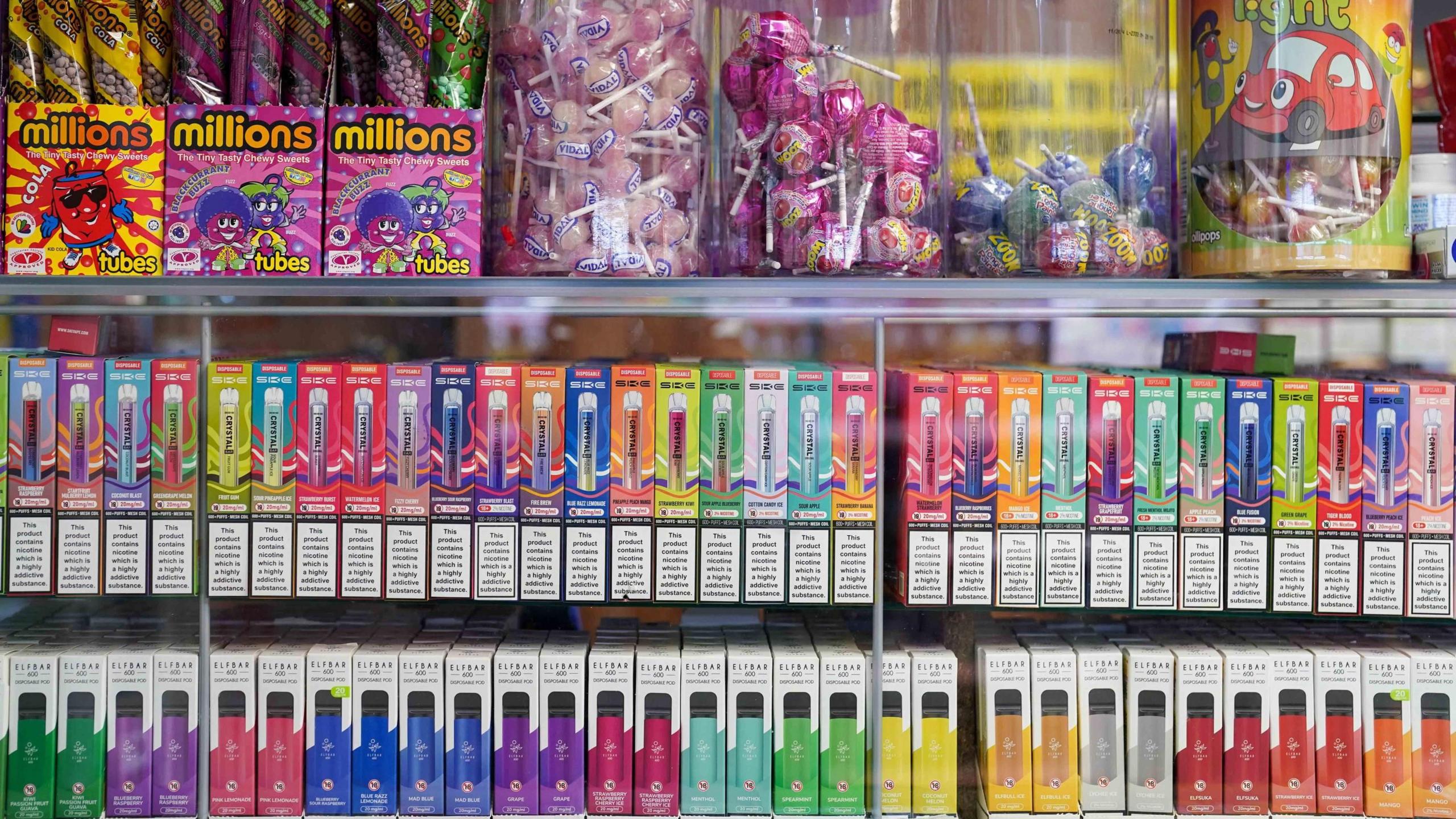What does the disposable vape ban mean for you?
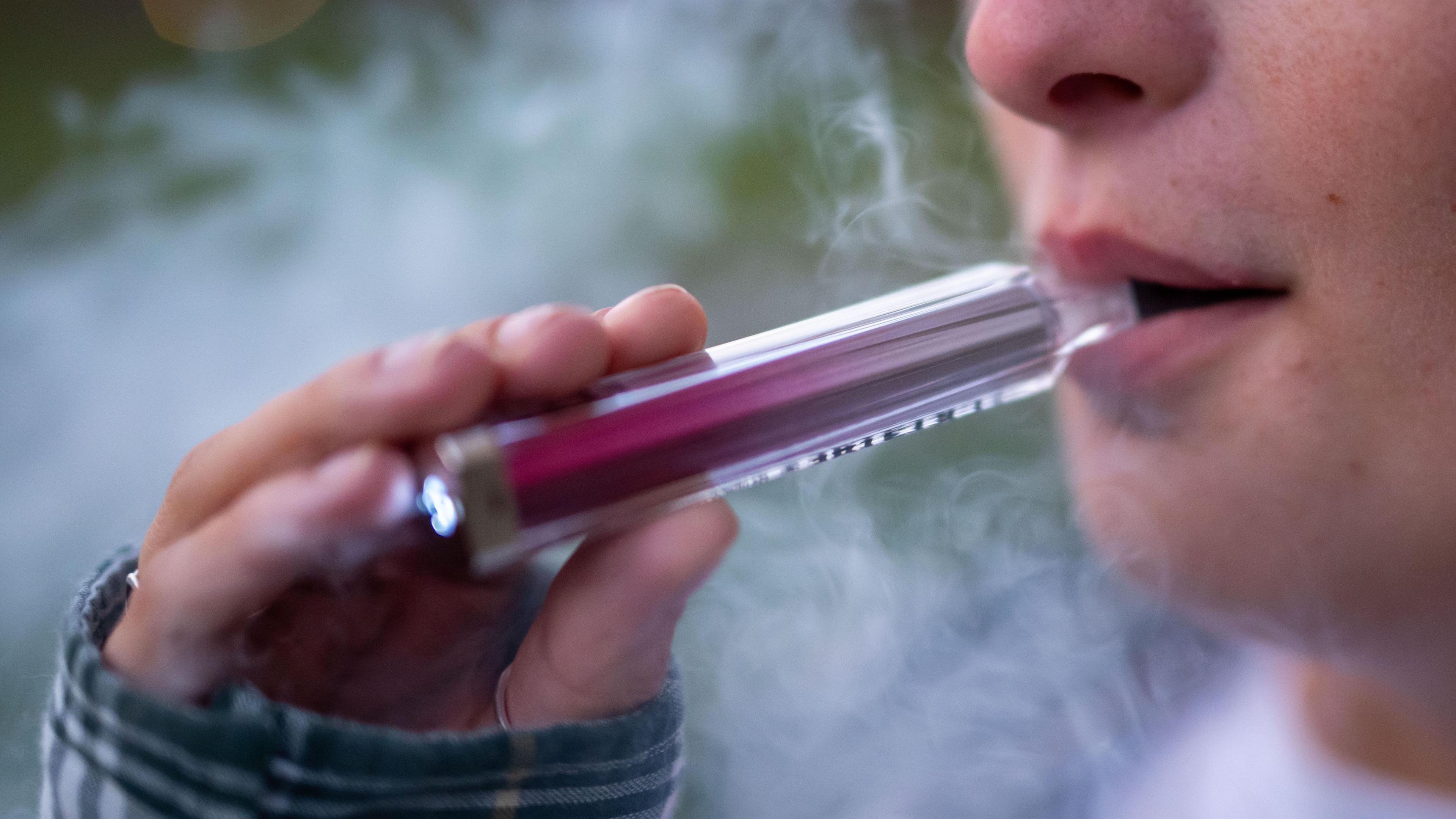
About 7% of 11 to 17-year-olds said they vaped when asked last year
- Published
Disposable vapes are less harmful than smoking cigarettes and have become a multi-million pound industry in the UK, so why is the government to ban them?
The single-use vapes are discarded after one usage, with Brits discarding an estimated five million disposable vapes each week.
Vaping is also harming the health of young people, often attracted to the sweet flavours and bright packaging, with about 7% (390,000) of 11 to 17-year-olds in the UK using vapes last year.
Ahead of the introduction of the ban on Sunday, BBC South East has been finding out more about the reasons behind the law change and what it means for you.
When vapes were first commercially available, they were meant to be used as a way for smokers to ditch cigarettes.
As of 2024, there were 5.6m adults vaping in Great Britain, according to public health charity Action on Smoking Health. But of those, 8% said they had never tried a cigarette before.
What is changing?
The ban has two objectives, which are to reduce environmental damage and help cut the number of young people addicted to nicotine.
Businesses will be no longer be allowed to sell or supply single-use vapes, either in shops or online.
In England, those found to have broken the law will receive a £200 fine and face up to two years in prison for repeat offences. The fines differ in Wales, Scotland and Northern Ireland.
Reusable vapes will remain largely available, as the government defines a reusable vape as one which can be refilled with liquid and recharged. A vape would be illegal if it cannot do both.
How does vaping affect children?
There has been an increase in youth vaping in recent years, with a quarter of 11 to 15-year-olds admitting they had tried it, despite it being illegal to sell them to people under 18, according to the Department of Health and Social Care.
Dr Jack Jacobs, a GP in Hamstreet, Kent, said vaping was a particular problem for young and developing lungs.
"The health concerns are all very documented now - it can cause damage to lungs and high doses of nicotine can potentially lead to heart arrhythmia," he said.
"I think the ban sends a message about the dangers and will help to limit the variety available."
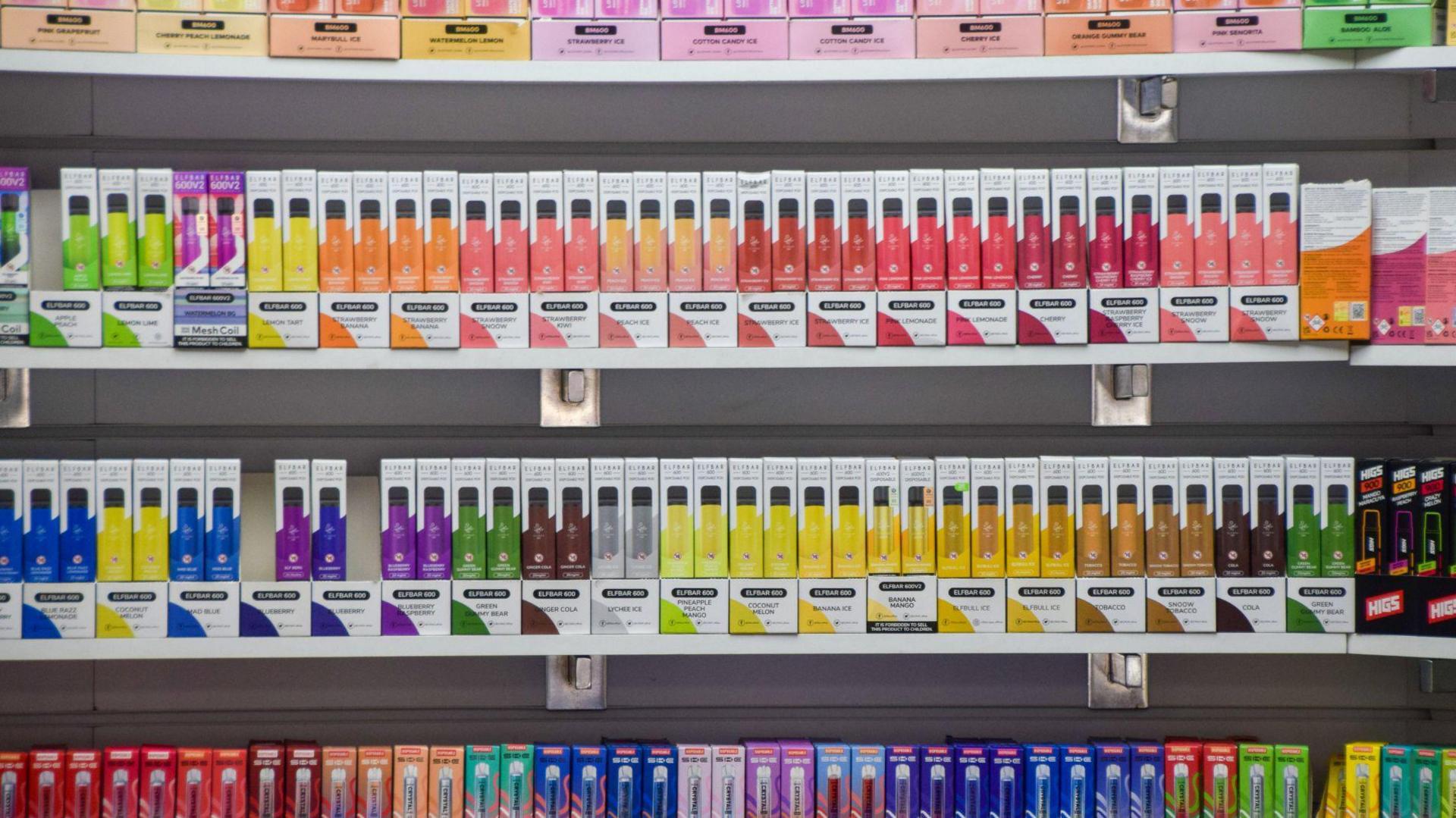
Children can be drawn in by the bright colours and sweet flavours of vapes
Earlier this year, the Welsh government's health minister, Sarah Murphy, said children were starting secondary school already addicted to vaping.
Ms Murphy said teachers told her that children were leaving lessons "two or three times" to vape, and were struggling to sit through their mock exams.
Steve Reed, the UK government's environment secretary, has promised that "rogue traders" who continue to sell disposable vapes to children would face "serious penalties".
"Single-use vapes get kids hooked on nicotine and blight our high streets, and we won't stand for this any longer," he added.
What about the environment?
It is nearly impossible for the plastic used in disposable vapes to completely break down.
Instead, the plastic breaks into tiny microplastics, which can enter the food chain and contaminate the environment.
All retailers that sell vapes must legally take them back once they are empty. But with an average of eight disposed of each second, most end up in landfill.
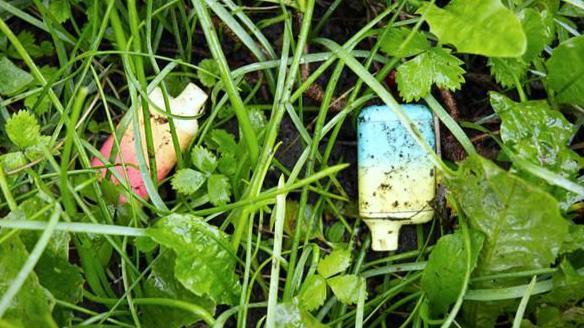
Single-use vapes are frequently thrown away
"For the small number of single-use vapes which are sent for recycling, it's a difficult job because they contain many chemical components and are not designed to be taken apart," a government spokesperson said.
"They usually have to be disassembled by hand – a slow and tricky process which struggles to match the avalanche of vapes that are produced and discarded."
In 2022, the Material Focus group found that more than 40 tonnes of lithium in single-use vapes were thrown out – the same amount needed to power 5,000 electric vehicles.
The were also 1,200 bin lorry fires in 2023 caused by vapes being incorrectly disposed of.
Here's what you had to say
A public consultation in February last year found that 69% of people were in favour of the ban – including many who work in the vape industry.
An employee at a vape shop in Hove, East Sussex, who asked to remain anonymous, told the BBC he and his colleagues were in favour of the ban.
"You're disposing of a whole battery every time, which is just no good for anyone, so we're all really happy for it," he said.
"We always try to tell people how much money they would be saving [with a reusable vape] and you always get more control with the nicotine, whereas all the disposables are just the strongest you can get."
But some doubted the ban will work as the government hoped, instead pushing the vape trade "underground".
Hove resident Brendan Barclay said: "It probably won't be effective. There's so many manufacturers out there that people will just get it by any means necessary, it's the same with drugs.
"It's just more work for the police to be honest."
And some disagree with the ban altogether, with one man calling it "another lack of freedom".
Follow BBC Kent on Facebook, external, on X, external, and on Instagram, external. Send your story ideas to southeasttoday@bbc.co.uk, external or WhatsApp us on 08081 002250.
- Published29 May
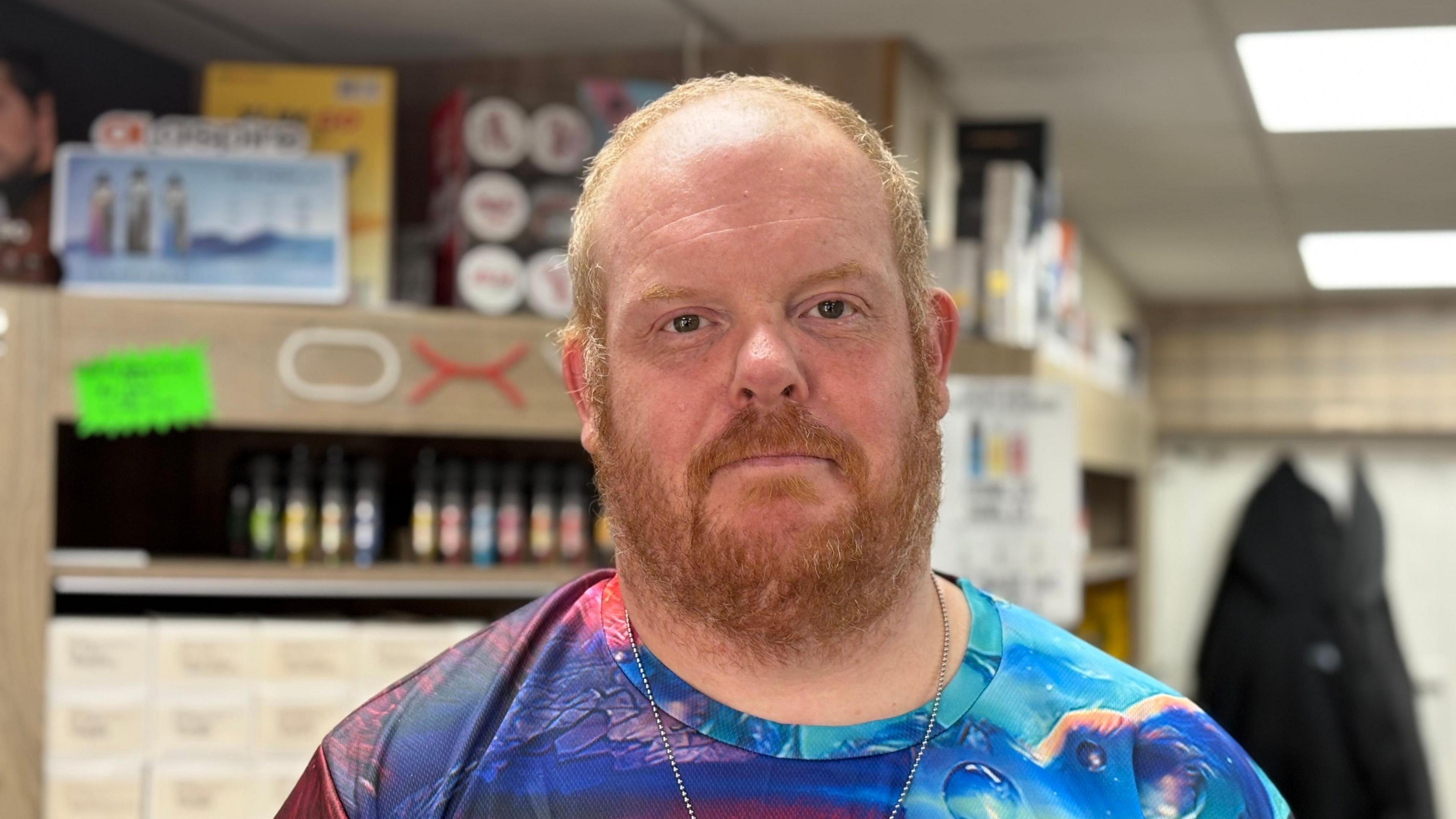
- Published27 May
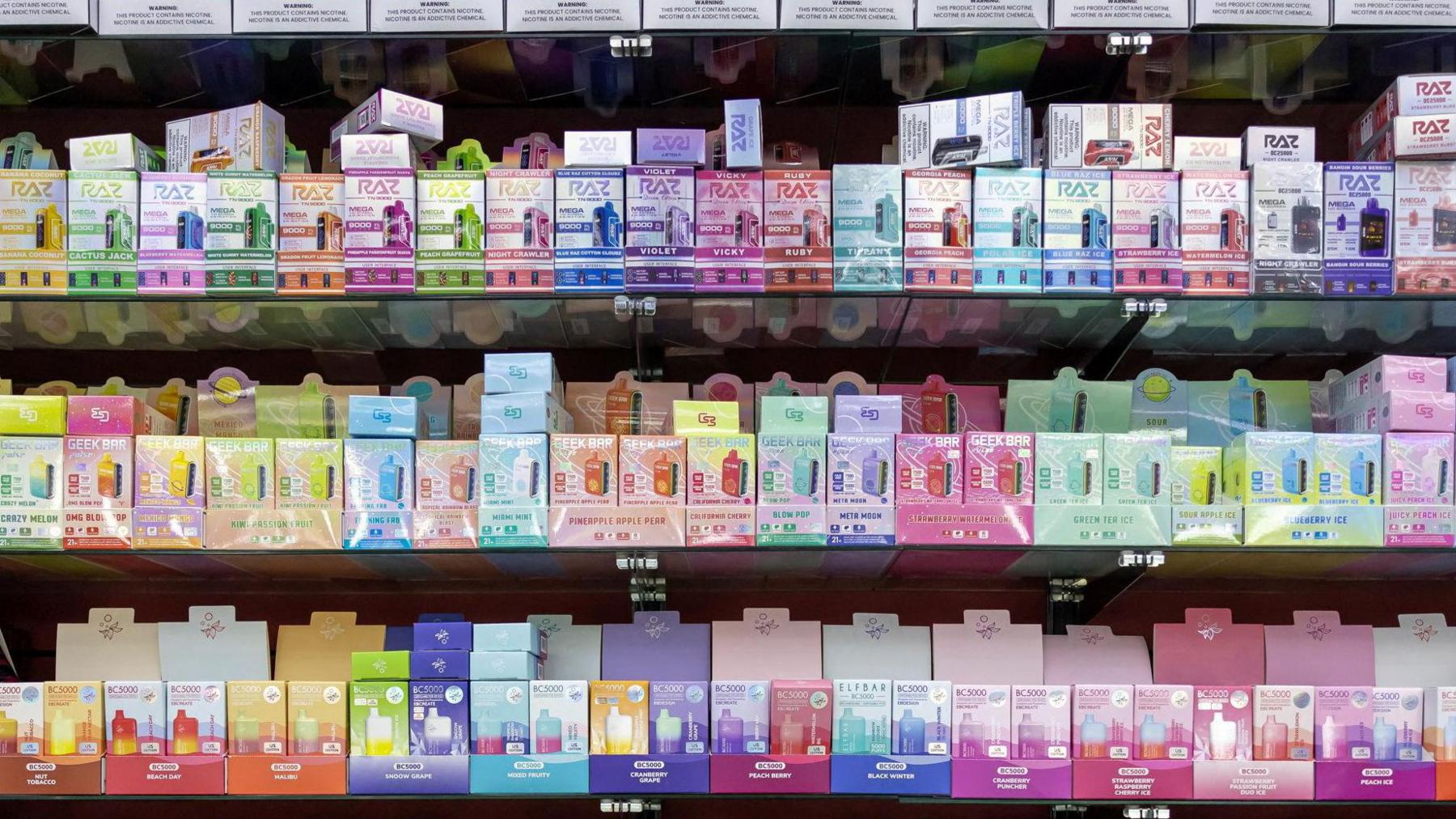
- Published28 May
